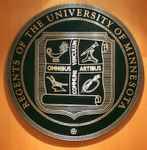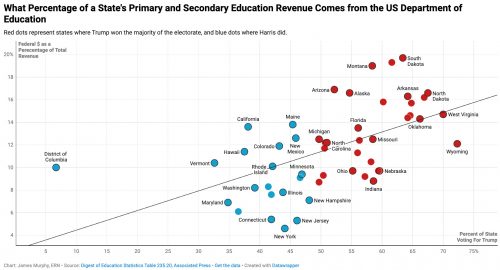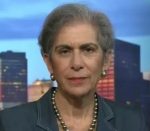The students don’t have any significant voice in the management of the university, oh heck no. It’s definitely not the faculty, either — they are allowed to contribute to strictly defined internal academic domains, but that’s it. The people who have real control over the resources of the university are the board of regents (at the University of Minnesota) or the board of trustees, as they are called at Columbia University. These are the people who actually call the shots, and generally they don’t participate in academic life at all.
The ultimate decision-maker at colleges and universities is the board of trustees. And these boards, as the explosive events of the past year demonstrate, have serious problems, both in how they are constituted and how they lead. Those committed to the distinctive strengths of the university as a maker, teacher and custodian of knowledge, both old and new, must at long last try to grasp why these boards are failing and figure out how to fix them.
Trustees (sometimes called governors, regents, visitors or “members of the corporation”) have a lofty function: to ensure the financial health and stability of the institution, partly through their own donations. This fiduciary responsibility has extended to the recruitment, appointment and retention of the school president, and sometimes of other senior administrators, usually (as at Columbia) with little substantive faculty consultation required by the norms of shared governance. Trustees play an increasingly active role in academic decisions through the levers of cost, donor power and financial austerity. In our fraught times, these levers are in increasing use, especially by the Trump-driven Republican party, to target disciplines, departments and individual professors. Many boards have become political wolves in the guise of fiduciary sheep.
Boards of trustees are essentially private clubs, which follow their own, always confidential, norms to determine who is asked to join, who controls key committees, and who is gently persuaded to resign when they do not meet the criteria of the most influential trustees. (In some private institutions, presidents may have a say in who gets selected as trustees, but presidents themselves are appointed by trustees.) At public universities, these boards are directly tied to the powers of state legislatures and administrators and thus are at the mercy of state politics in key matters. At private universities, the club is dominated by heavy hitters in business, law and technology; the number of alumni, academics and students is vanishingly small. These business-oriented trustees (a majority being white and male) treat their board meetings as golf parties; they schmooze, network and discuss deals while going through the motions of discussing university policies and priorities.
I think I’ve met a regent at the University of Minnesota maybe twice. They generally aren’t at all interested in professors, and students even less. As the linked article explains, this is a real problem: there is a deep gulf between what universities do, and who gets to pull the strings. They’re mostly CEOs, lawyers, hospital administrators, bankers, retired politicians, that sort of thing.
Who becomes a trustee? At Columbia there are 21, all of them from business, law and technology, with the exception of a former journalist. Although they are in charge of an academic institution, none of them is an academic. None has ever led a classroom or a lab meeting or medical rounds with interns. None has gone through the process of tenure, where their teaching, publication record and service are rigorously assessed by colleagues in the field both from within the institution and outside it. None has ever had their work peer-reviewed by anonymous readers or panels of experts. None has ever published in academic or scientific journals or presses and had their ideas debated in the public sphere. None has ever framed a hypothesis and tested it on the basis of evidence they have collected. None, in short, has sought truth and had their search confirmed by objective scholars and scientists.
The University of Minnesota isn’t quite that bad, but almost; I think we’ve got one emeritus faculty on there. In general, though, they are moneyed people with deep financial interests, not scholarly experience. Here in Minnesota they are all volunteers, and are not paid for their services, which does make me wonder why they are doing this at all. It’s a mystery. I don’t like being managed by rich people with mysterious motives, but that’s where we’re at. Especially when they mostly look conservative and Republican.
This is a problem everywhere.
The Columbia board is by no means unique. The same situation prevails, with few exceptions, across the Ivy League and its peer institutions (exemplary is the University of Chicago). As far as public universities are concerned, though there are some variations among several of the flagships, such as the regents of the universities of California, Michigan and Wisconsin, they are typically composed of lawyers, politicians and businessmen, and generally appointed by governors of individual states. Their accountability is hard to locate in their charter documents, and their near-autonomous powers are wide-ranging. In these regards, they are very much like their private counterparts./p>
There is a fantasy solution proposed. Balance the CEOs on boards with professors and students, to realign the values of the university.
The most urgent need today, as the Columbia case shows, is to create a new social contract on boards of trustees, who have become too craven to be watchdogs and too self-interested to be trusted. This change will require hard community-based activism that balances lawyers, hedge fund managers and tech bros with professors, schoolteachers, researchers, scientists and students. For public institutions, this may require legal support, as well as a powerful alliance between communities and state governors. Without such changes in boards of trustees, the current capture of colleges and universities by an unholy alliance of wealthy alumni, rightwing billionaires and bureaucrats is likely to become entrenched.
Creating this new social contract will require two crucial steps. The first is to bring the full force of public scrutiny to bear on boards, their membership, their accountability and the checks on their powers. The second is to demand that all academic governing boards both reflect and defend the fundamental values of universities in a liberal democracy: freedom of academic speech, opinion and inquiry; procedural transparency; and demographic diversity.
Nice. Although I had to laugh: the regents/trustees have all the power and complete autonomy, so how do we convince them to surrender some of their power to the people they govern? Shall we ask them nicely? I guess we could demand, but all they have to do is say “no.”












